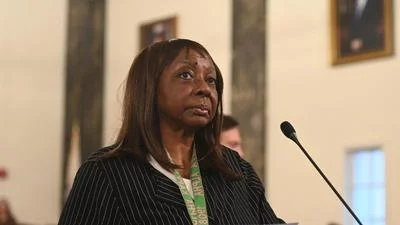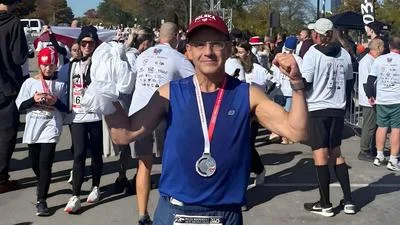Martin Preib, former FOP Lodge 7 spokesman and author of the blog "Crooked City." | provided
Martin Preib, former FOP Lodge 7 spokesman and author of the blog "Crooked City." | provided
Policies that require Chicago police officers to report misconduct among their ranks will only serve to lead to even more lawsuits against cops, according to Martin Preib, retired police officer and former spokesman for the Chicago FOP police union.
“Among the new buzzwords in Chicago’s war on the criminal justice system is the claim of ‘duty to intervene,’” Preib wrote in his blog, “Crooked City.”
“The phrase describes the city’s demand that officers should turn in officers who commit misconduct. That is the rhetoric. In reality, it is a phrase that will be used to cast a wider net in the war on police officers by attorneys and their media lapdogs.”
Last August, the Office of Inspector General (OIG) published a report, “Enforcement of the Chicago Police Department’s Rules Requiring Members to Report Misconduct,” which said the police work under conflicting policies when it comes to reporting misconduct by their fellow officers.
The report stems from a consent decree approved by a federal judge in 2019 that requires reforms within the department.
The OIG report contains a list of findings: the Chicago Police Department (CPD), for instance, “informs members of their duty to report misconduct during recruit training but does not formally reinforce this requirement through ongoing training or messaging.” And it contains a list of recommendations: among them that the “CPD should formally incorporate duty to report requirements into its in-service training program and should issue periodic communications to remind members of and refresh them on their duty to report misconduct.”
No such rules, Preib wrote, hold for Chicago reporters whom he argues habitually fashion their narratives that paint police in a bad light.
‘Look across the rest of the sordid and bankrupt institutions of Chicago and the high-principled rhetoric demanding parties intervening in alleged misconduct quickly disappears,” Preib wrote. “Time and again, for example, Chicago’s activist reporters are caught lying or ignoring evidence that undermine their predetermined narratives, yet no other reporter steps forward to confront them, revealing a collusion in Chicago journalism on a scale never seen in the American media.”
“How lucrative,” Preib added. “Instead of one defendant in a cut-and-paste lawsuit from a ‘civil rights’ attorney, there can be dozens, including everyone on view of a police body worn camera. In pushing this new ‘accountability frontier,’ the combine of exoneration attorneys and their media lapdogs have opened up a powerful new revenue stream."
The popular police blog Second City Cop recently pointed out that the CPD is already under the watch of multiple oversight agencies, including the Community Commission for Public Safety and Accountability, the Civilian Office of Police Accountability, the Chicago Police Board, the administrators of the consent decree, and local district councils.
“Is there any comparable amount of people and boards overseeing the fire department, the schools, the city council,” Second City Cop wrote.
Spokesperson for the OIG, Deanna Shoss, said that they were not "aware of any pertinent policy changes, and we have not yet done a follow-up or asked the Chicago Police Department (CPD) about any changes in response to the report."
The CPD did not respond to a request for comment.






 Alerts Sign-up
Alerts Sign-up